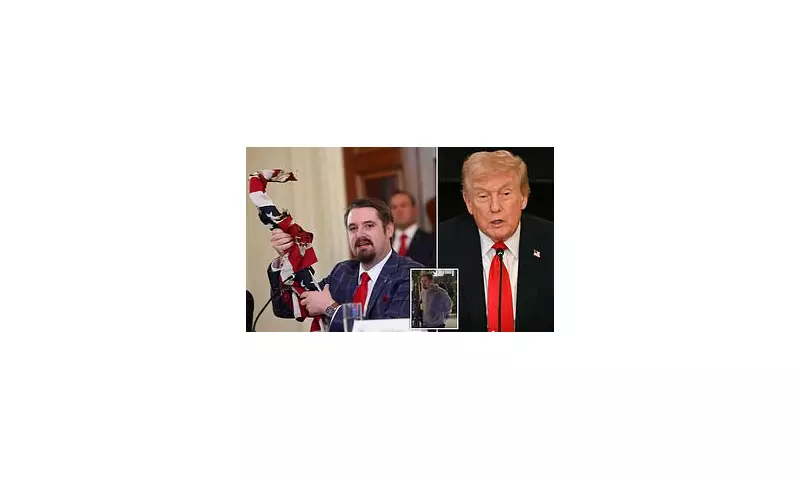
In a scene that blurred the lines between political theatre and protest, conservative firebrand JJ Siler orchestrated one of the most unusual moments in recent political memory during a Portland gathering.
The Dramatic Reveal
As tensions ran high ahead of former President Donald Trump's scheduled arrest, Siler produced a carefully preserved, partially burned American flag during what was described as a "protest meeting." The charred banner, displayed to attendees, served as both a political statement and a provocative symbol of the nation's divided political landscape.
Context of Controversy
The gathering took place against the backdrop of escalating political tensions, with Trump supporters mobilizing in response to the former president's legal challenges. Portland, known for its history of intense political activism on both sides of the spectrum, provided the perfect stage for Siler's dramatic gesture.
The burned flag, presented almost as evidence of national discord, became the centrepiece of discussions about patriotism, protest rights, and the boundaries of political expression. Siler, known for his uncompromising conservative stance, framed the display as a commentary on what he perceives as attacks on American values and traditions.
Mixed Reactions
Eyewitnesses reported a range of reactions from those present, from enthusiastic support to visible discomfort. The stunt has since ignited debate beyond the meeting's confines, with social media platforms buzzing with commentary about the appropriateness and meaning of displaying a desecrated national symbol.
Political analysts suggest such theatrical tactics reflect the increasingly performative nature of American politics, where symbolic gestures often generate more attention than policy discussions. The incident underscores how deeply polarized the political environment remains as the country moves toward another election cycle.
As the dust settles on this bizarre political moment, questions remain about the effectiveness of such provocative tactics in advancing political causes versus simply deepening existing divisions within an already fractured political landscape.






